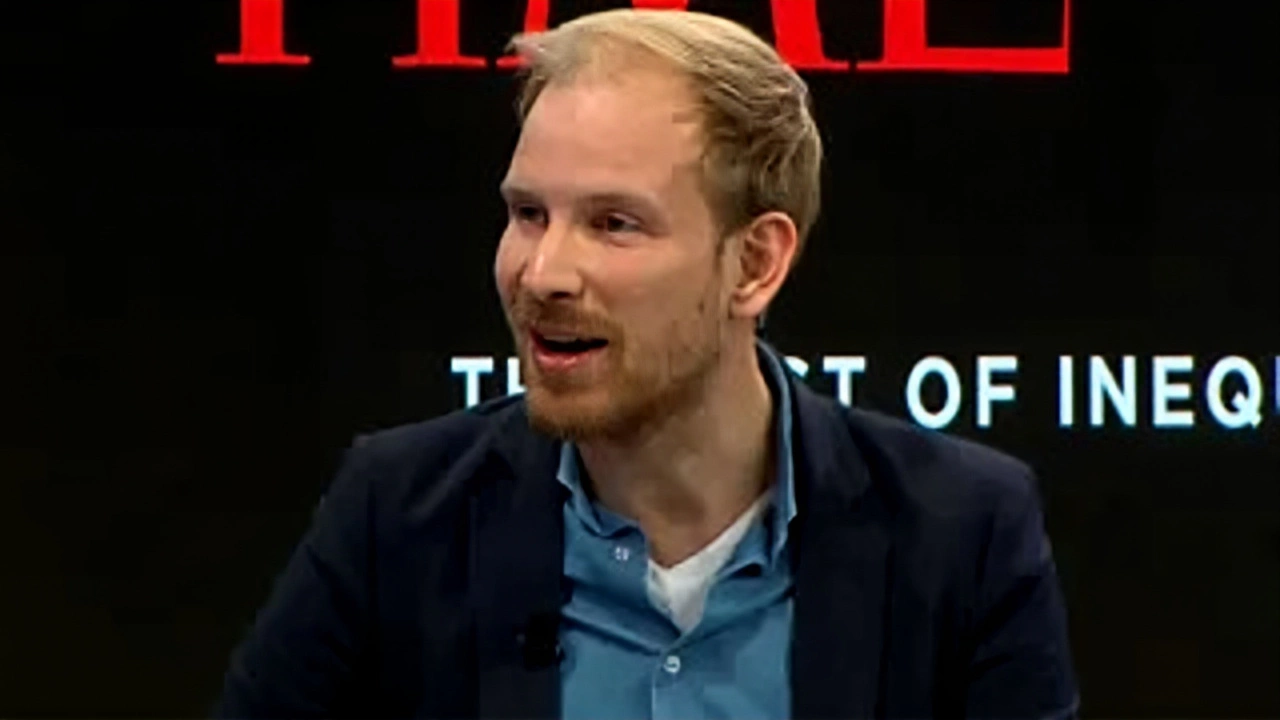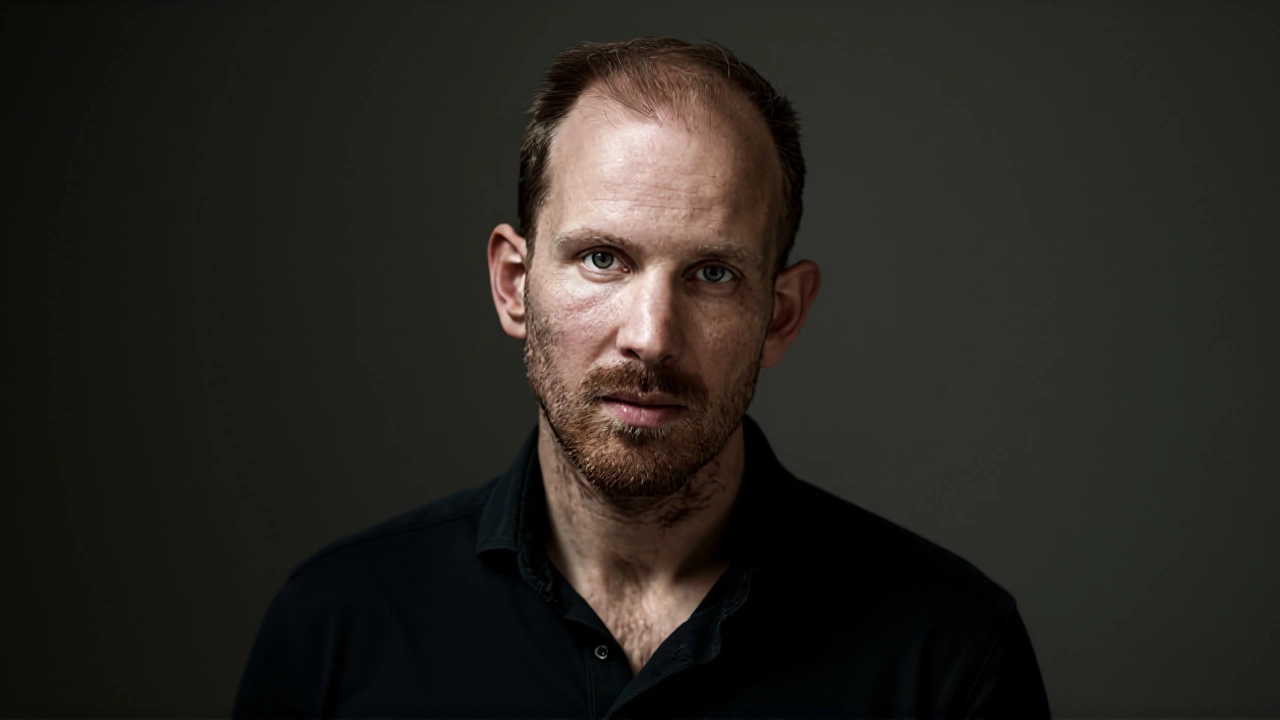When Rutger Bregman stepped onto the stage at London’s Royal Institution in October 2025 to deliver the first of his Reith Lectures, he expected a platform for bold ideas — not corporate silence. He opened with a line he believed was grounded in fact: "Donald Trump is the most openly corrupt president in American history." That sentence vanished before the broadcast. On November 22, 2025, listeners tuning into BBC Radio 4 heard the lecture — but not that line. Bregman, the 37-year-old Dutch historian and author of Utopia For Realists, didn’t hold back. "I have some really disappointing news to share," he wrote on social media. "The BBC has censored my opening lecture. They deleted the sentence where I called Trump the most openly corrupt president in American history. That line is gone." Here’s the thing: Bregman wasn’t throwing around insults. He pointed to a detailed August 2025 investigation by The New Yorker that documented how Trump’s presidency became a personal revenue stream — from foreign government payments at his D.C. hotel to licensing deals tied to his name. The report estimated his personal gains from the office at over $2.3 million in just 18 months. "It wasn’t a baseless accusation," Bregman insisted. "It was documented. It was public. And now it’s been erased." The BBC’s response? "Legal advice." A phrase that’s become the go-to shield for media outlets under pressure. But Bregman says it came from the top. "This wasn’t an editor’s call," he told reporters. "This was approved at the highest levels of the BBC." And here’s the twist: it happened while Donald Trump was simultaneously threatening the BBC with a $1 billion lawsuit over a 2024 Panorama episode that edited clips of his January 6, 2021 speech. The network had trimmed his false claims about election fraud — a move Trump called "defamatory." Now, the same network is scrubbing criticism of him from a prestigious intellectual series. Coincidence? Maybe. But the pattern is hard to ignore.
The Reith Lectures: A Legacy Under Pressure
Established in 1948 and named after the BBC’s first director-general, the Reith Lectures have long been the gold standard for public intellectual discourse. Past speakers include Bertrand Russell, Margaret Atwood, and Stephen Hawking. This year’s theme — "The Future of Morality" — was meant to spark debate, not suppress it. Yet Bregman’s edited remarks suggest the BBC may now be playing it safe. "This decision isn’t about me," Bregman said. "It’s about something much bigger. Free expression should concern everyone." And it’s not like he was pulling punches elsewhere. His lecture kept other sharp critiques: calling Trump "a convicted reality star," "a modern-day Caligula," and criticizing President Joe Biden as "an elderly man in obvious mental decline." The BBC didn’t touch those. So why remove only the line about corruption? That’s the question haunting academics, journalists, and viewers alike.Who’s Really Afraid of the Truth?
Bregman has been a lightning rod before. His 2019 interview with Tucker Carlson ended with the Fox host calling him a "moron" — a moment that went viral precisely because Bregman stayed calm, citing data while Carlson ranted. He’s not a provocateur for the sake of it. He’s a progressive optimist who believes in systemic change. In Davos in 2019, he declared, "Our best days are in the future." Now, he’s watching that future get edited out of broadcast. His upcoming book, Moral Ambition, due out in spring 2025, argues that society should redirect talented people away from "bullshit jobs" — a term coined by anthropologist David Graeber — and toward meaningful work. He also champions immigration, saying, "Sometimes I feel that’s the new political correctness: you can’t say anything positive about the power of immigrants." He admires Kamala Harris’s campaign but admits he’s "quite terrified" about the U.S. election outcome — a sentiment he shares as a resident of what he calls "my new home country."
What This Means for Journalism
The BBC isn’t alone in walking this tightrope. Newsrooms globally are increasingly cautious when covering powerful figures who can sue, smear, or silence. But the Reith Lectures aren’t tabloid journalism. They’re supposed to be the opposite: a space where ideas, even uncomfortable ones, are aired without fear. If a historian can’t call a sitting president — or former president — corrupt without his words being deleted, what’s left? The chilling effect is real. Other speakers may now self-censor. Young journalists will learn that truth has a price — and sometimes, that price is silence.
What Comes Next?
Bregman says he’s considering legal options. "If the BBC is going to edit speech based on legal threats from a private citizen," he said, "then they’re not a public broadcaster anymore. They’re a legal risk management firm with a radio signal." Meanwhile, the Reith Lectures continue. His next lecture, scheduled for November 29, 2025, will be broadcast live. Will they edit it too? No one knows. But the world is watching.Frequently Asked Questions
Why did the BBC remove the line about Trump’s corruption?
The BBC stated the edit was made "on legal advice," citing concerns over potential defamation claims from Donald Trump. However, Bregman and media experts argue the statement was supported by a detailed August 2025 New Yorker investigation documenting Trump’s financial gains during his presidency, making it a factual claim rather than opinion. The decision appears inconsistent, as other critical remarks about Trump and Biden remained unedited.
Is this the first time the BBC has censored political criticism?
No. The BBC has faced criticism before for perceived bias, including edits to coverage of Israel-Palestine and Brexit. But this is unusual because the Reith Lectures are meant to be a forum for unfiltered intellectual discourse. Past speakers have criticized heads of state without censorship. The legal threat from Trump — combined with his $1 billion lawsuit over the Panorama edit — suggests a chilling effect tied to financial intimidation.
How does this affect the credibility of the Reith Lectures?
The Reith Lectures have been a pillar of public intellectual life since 1948. Removing a fact-based critique of a former president — while leaving other criticisms intact — undermines their claim to be a space for rigorous, fearless debate. If speakers fear their words will be excised for political convenience, the series risks becoming a curated performance rather than a genuine exchange of ideas.
What’s the connection between Bregman’s case and Trump’s lawsuit against the BBC?
Both involve Trump threatening legal action over edited content. In the Panorama case, the BBC trimmed Trump’s false claims about the 2020 election. In Bregman’s case, the BBC removed a factual assertion about his financial corruption. The timing suggests the BBC may be overcorrecting to avoid litigation — even when the original statements are well-documented. This creates a dangerous precedent where legal threats dictate editorial policy.
Why did the BBC keep other critical remarks about Trump and Biden?
The remarks kept — calling Trump a "convicted reality star" and Biden "an elderly man in obvious mental decline" — are framed as subjective opinions. The deleted line, however, was presented as a factual claim backed by investigative journalism. This distinction matters legally: opinions are protected speech; factual assertions can be grounds for defamation suits. But critics argue that labeling documented financial misconduct as "opinion" distorts the truth and weakens journalistic integrity.
What does this mean for future Reith Lecturers?
Future speakers may now hesitate to challenge powerful figures, even with evidence. The fear of legal retaliation — or internal editorial suppression — could lead to safer, less impactful lectures. If the Reith Lectures become a space only for uncontroversial ideas, they lose their purpose. As Bregman warned, this isn’t just about him — it’s about whether public institutions still have the courage to speak truth to power.


